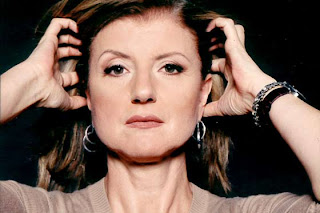
In celebration of my starting a
side project writing tech for
The Huffington Post, I'm posting on a subject that one of my fellow writers covered in a different section of the site:
It's a Confusing Moment To Be a Young Journalist.
Ain't that the truth.
Occidental College research fellow and journalist in residence Steven Barrie-Anthony, a mere three years older than yours truly, says despite the confusion (and all that hubbub about the Internet), the young journalist won't complain.
"I am outraged by corporate owners who, with little understanding of how journalism works...approach the uncertain future with their eyes strictly on the bottom line...this is clearly the worst of times. On the other hand, I sometimes find myself delighted by all this chaos and ferment."
"Could this be - dare I say it - the best of times?"
With his commentary, he invites other reporters to weigh in: Reporters of the LA Weekly, LA Times, Village Voice, and others. Some great commentary from old and young journalists alike follows his post.
So I thought it would be appropriate for The Editorialiste to take a whack at it.
Allow me to start by saying that I am not one of those people that always thought they would be a journalist. I found no interest in the profession until I got to college, where a great political journalism course lit up my pen and sparked everything.
In his post, Barrie-Anthony completely painted an accurate picture of the times, at least for us in our 20s, and maybe everyone else, too. In my own experience, I am constantly barraged with conflicting advice and concern from many of my colleagues, friends and mentors.
Some say journalism is bunk.
Some are amused.
Some find it noble.
Some think journalism school is $60,000 down the drain.
Some think it's opportunity.
Some think it's a poor profession.
Some think we should just be doctors or lawyers.
Some think it's a lot of work.
Some think we're spoiled, plugged-in brats.
Some think we're an exciting digital generation.
Some don't know what to think.
And there's truth in it all, to some degree. But if I had to say something about all this, what would I say, besides everything I've already said on this very blog?
First I'd say that Kathleen Nye Flynn, 25-year-old reporter for the Los Angeles Downtown News, got it right: "Call me blind or stupid, but I can't give up on something that I have so much invested in."
It's that kind of passion that will change everything, and it's that kind of passion that the ones who really care to succeed are fueled by. Right now, I'm strung out by my teeth in the most expensive city in the nation, cobbling together freelance assignments and a day job to do what I want to do. If I didn't have that passion, I'd probably be living at home (which, financial relief aside, is not something I consider a help to my attempted career trajectory).
Tom Brokaw called those WW2 G.I.s the 'Greatest Generation' because they fought in a great war. And call me on being ridiculous, but in this latest incarnation of the war on journalism -- sometimes partially a civil war, so maybe the war of journalism -- I think the multi-talented, writer-producer-webmasters that come out on top are really gonna change the way things are done, rooted in the old. Call us whatever you want, but we're definitely a generation worth naming.
That's what I think. What do you?







![Editorialiste [at] gmail](https://blogger.googleusercontent.com/img/b/R29vZ2xl/AVvXsEjzDvlHqUd5msfCmRq2Q5EZRpn_nbVg33bjiUhLEigM_5fudZhIHvuAVxB4_MS0xn-cQ0EKyjxOua1ysQ4NdMzyvhg1oSVTv6OJAarhVTqG0BBkJKTjqBhwMjrMGOANWxT8l8rKFg/s220/editorialiste_logo.jpg)